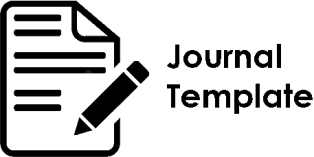Al-Biruni's Contribution To The Development Of Qibla Determination Methods: Historical Analysis And Scientific Relevance
DOI:
https://doi.org/10.29240/ajis.v10i1.12600Keywords:
Al-Biruni, Qibla Determination, Islamic Astronomy, Scientific Contribution, Historical AnalysisAbstract
Abu Raihan Muhammad bin Ahmad Al-Biruni, a prominent Muslim scholar born in 973 CE, made important contributions to the development of a more accurate method of Qibla direction determination. This Research aims to explore Al-Biruni's contribution to overcoming the limitations of traditional methods that lack precision by developing an innovative approach that combines astronomical observations and sophisticated mathematical calculations. By utilizing the positions of celestial bodies, such as the stars Canopus and Polaris, as well as the Sun's direction during the summer and winter solstices, Al-Biruni achieved a more accurate determination of Qibla. The research methodology uses a qualitative approach that includes an analysis of Al-Biruni's monumental work, Al-Qanun al-Mas'udi, especially book 5, section 5, which contains detailed calculations using spherical trigonometry and celestial sphere diagrams, as well as the application of sine and cosine rules in the process of calculating the Qibla Direction. The research findings show that Al-Biruni's method, which utilizes the positions of celestial bodies and spherical astronomical calculations, can produce a Qibla direction determination with a level of accuracy comparable to that of modern techniques. The originality of this approach lies in its systematic integration of astronomy and mathematics, which not only increases the accuracy of Qibla direction determination but also provides a basis for the development of contemporary scientific methods. The results of this research confirm the relevance and significance of Al-Biruni's method in bridging spiritual needs and scientific progress.
Downloads
References
Abadi, M. K. R., and U. Saida. “Indonesian Millennialâ€TM's Financial Behaviour: The Role of Financial Literacy in Intention to Use Fintech Lending.” AJIS: Academic Journal of Islamic …, 2024. https://journal.iaincurup.ac.id/index.php/AJIS/article/view/10050.
Abu Raihan Al-Biruni. Al-Qanun al-Mas’udi. Vol. 2, 1955.
Abu Raihan Al-Biruni. Al-Qanun al-Mas’udi. Vol. 5, 1955.
———. The Chronology of Ancient Nations: An English Version. London: William H. Allen Company, 1879.
Ahmad Izzuddin. Kajian Terhadap Metode-Metode Penentuan Arah Kiblat Dan Akurasinya. Jakarta: Kementerian Agama RI, 2012.
Akbar, Reza, and Asman Asman. “Social Conflict Due to the Controversy of Mosque’s Qibla Direction in Sejiram Village, Sambas Regency.” Jurnal Ilmiah Al-Syir Ah 18, no. 1 (2020): 1. https://doi.org/10.30984/jis.v18i1.926.
Amda, A. D. “Science and Technology in the Islamic Perspective.” AJIS: Academic Journal of Islamic Studies, 2016. https://journal.iaincurup.ac.id/index.php/AJIS/article/view/94.
Arsiti, N. “Application of the Principle of Al-Adah Muhakkamah in Mudharabah Practice.” AJIS: Academic Journal of Islamic Studies, 2024. https://journal.iaincurup.ac.id/index.php/AJIS/article/view/10939.
Assyakurrohim, Dimas, Dewa Ikhram, Rusdy A. Sirodj, and Muhammad Win Afgani. “Metode Studi Kasus Dalam Penelitian Kualitatif.” Jurnal Pendidikan Sains Dan Komputer 3, no. 1 (December 2022): 1–9. https://doi.org/10.47709/jpsk.v3i01.1951.
Elkhairati, E., A. Arsal, and M. Imran. “Professionalism and Religiosity: A Thematic Interpretation Study on Muslim Workers in Indonesia.” … : Academic Journal of Islamic …, January 2024, 118–118. https://doi.org/10.29240/ajis.v9i1.10002.
Ghorbani, Mansour. “Al-Biruni A Scientist Beyond His Time.” Journal of Pars Arian Territories 1, no. 1 (April 22, 2024): 1–8. https://doi.org/10.61186/jpat.2024.1.1.
Hafizh, M., S. Lailah, W. Astuti, and ... “Axiological Analysis of Knowledge Cultivation and Its Contemporary Contextualization (Study of Umar Bin Khattab’s Thought).” AJIS: Academic Journal …, 2023. https://journal.iaincurup.ac.id/index.php/AJIS/article/view/7266.
Hasan, Moiz, and Pablo Olano. “The House of Wisdom: How Arabic Science Saved Ancient Knowledge and Gave Us the Renaissance.” Choice Reviews Online 49, no. 02 (October 1, 2011): 49–0823. https://doi.org/10.5860/choice.49-0823.
Helena, Y., and S. T. Sumanti. “Digital Transformation in Islamic Education, Improving The Quality of Teachers in Islamic Education in Padangsidimpuan City.” AJIS: Academic Journal of Islamic …, 2024. https://journal.iaincurup.ac.id/index.php/AJIS/article/view/12247.
Hussain, Saddam, Zheng Chunrou, and Fu Juan. “The Mosque’s Primary Spaces and the Required Direction of the Mosque Building.” Journal of Islamic Architecture 7, no. 4 (2023): 719–35. https://doi.org/10.18860/jia.v7i4.21497.
Kasim, Andi Jusran, and Muliani Muliani. “AKURASI ARAH KIBLAT MASJID DI WILAYAH KECAMATAN BANGGAE KABUPATEN MAJENE.” QISTHOSIA Jurnal Syariah Dan Hukum 3, no. 1 (June 2022): 1–16. https://doi.org/10.46870/jhki.v3i1.227.
Khan, A. “Al-Biruni’s Astronomical Calculations: A Modern Interpretation.” International Journal of Astronomy and Astrophysics 13, no. 1 (2023): 22–35.
King, A David. Astronomy In the Service of Islam. USA: Variorum Reprints, 1993.
———. World Maps for Finding the Direction and Distance to Mecca. Leiden: Boston, 1999.
King, David A. “The Sacred Direction in Islam A Study of the Interaction of Religion and Science in the Middle Ages.” Interdisciplinary Science Reviews 10, no. 4 (January 1985): 315–28. https://doi.org/10.1179/isr.1985.10.4.315.
———. “The Sacred Geography of Islam.” In Elsevier eBooks, 161–78. Elsevier BV, 2005. https://doi.org/10.1016/b978-044450328-2/50010-2.
Kisworo, B. “The Implementation of Islam as Rahmah Li Al-’alamin in Indonesia: Contributions, Challenges and Opportunities.” AJIS: Academic Journal of Islamic Studies, 2017. https://journal.iaincurup.ac.id/index.php/AJIS/article/view/311.
Downloads
Published
How to Cite
Issue
Section
Citation Check
License
Copyright (c) 2025 Abdul Kohar

This work is licensed under a Creative Commons Attribution-NonCommercial-ShareAlike 4.0 International License.
Authors who publish with this journal agree to the following terms:- Authors retain copyright and grant the journal right of first publication with the work simultaneously licensed under a Creative Commons Attribution License (CC BY-NC-SA 4.0) that allows others to share the work with an acknowledgment of the work's authorship and initial publication in this journal.
- Authors are able to enter into separate, additional contractual arrangements for the non-exclusive distribution of the journal's published version of the work (e.g., post it to an institutional repository or publish it in a book), with an acknowledgment of its initial publication in this journal.
- Authors are permitted and encouraged to post their work online (e.g., in institutional repositories or on their website) prior to and during the submission process, as it can lead to productive exchanges, as well as earlier and greater citation of published work (See The Effect of Open Access).







